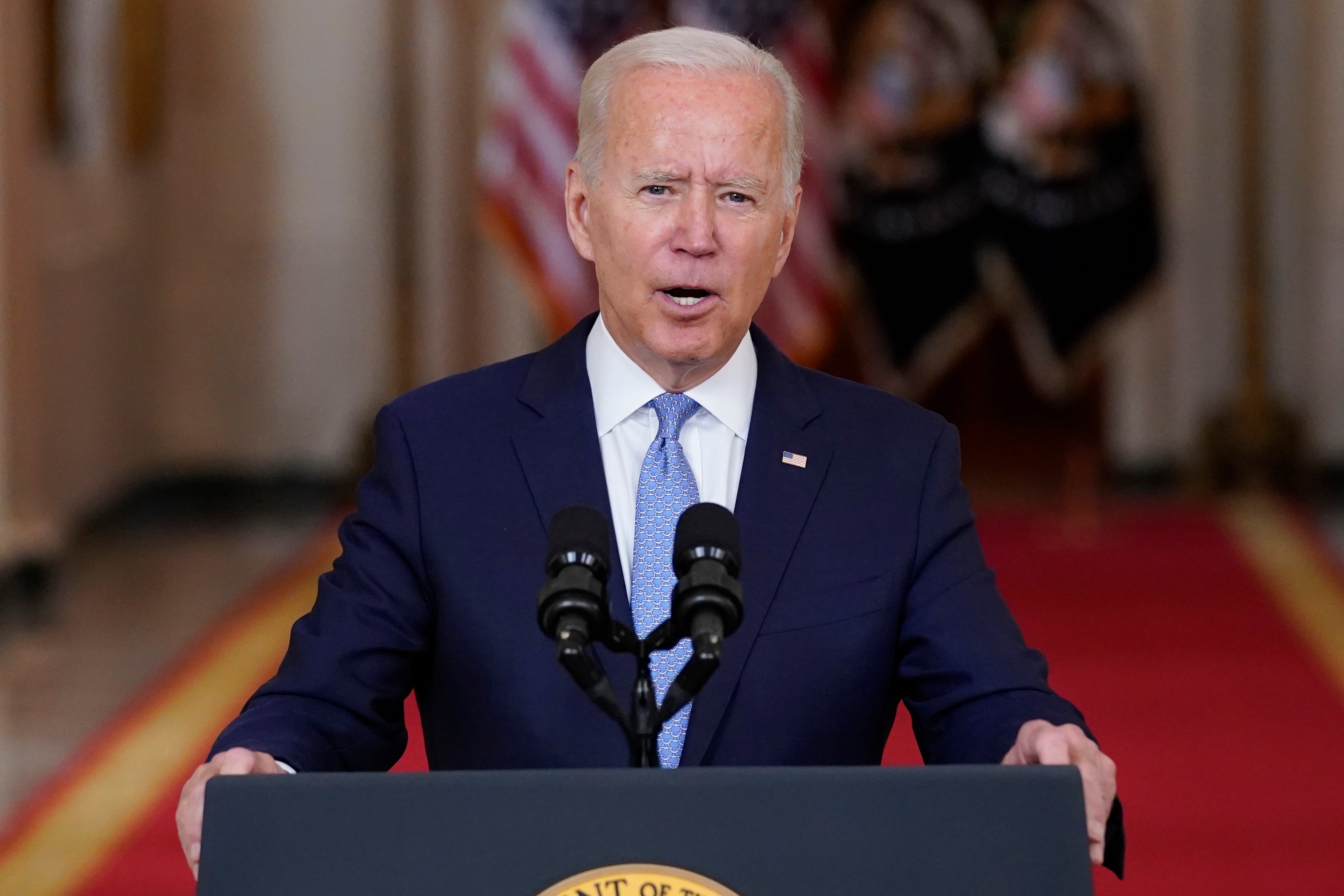US sets up Afghan relief fund with frozen central bank money
The U.S. and Swiss governments and Afghan economics experts say they'll transfer $3.5 billion in frozen funds from Afghanistan’s central bank to use for the country’s people as hunger grips every province there

Your support helps us to tell the story
From reproductive rights to climate change to Big Tech, The Independent is on the ground when the story is developing. Whether it's investigating the financials of Elon Musk's pro-Trump PAC or producing our latest documentary, 'The A Word', which shines a light on the American women fighting for reproductive rights, we know how important it is to parse out the facts from the messaging.
At such a critical moment in US history, we need reporters on the ground. Your donation allows us to keep sending journalists to speak to both sides of the story.
The Independent is trusted by Americans across the entire political spectrum. And unlike many other quality news outlets, we choose not to lock Americans out of our reporting and analysis with paywalls. We believe quality journalism should be available to everyone, paid for by those who can afford it.
Your support makes all the difference.The U.S. and Swiss governments and Afghan economics experts said Wednesday they will transfer $3.5 billion in frozen funds from Afghanistan's central bank to use for the country's people as hunger grips every province there.
Notably, the Taliban government will not be a part of the new Afghan Fund, which will maintain its account with the Bank for International Settlements in Switzerland.
In the interim, Afghanistan's central bank, which in February had $7 billion in frozen funds, “must demonstrate that it has the expertise, capacity, and independence to responsibly perform the duties of a central bank,” the U.S. Treasury and State departments said Wednesday in a joint statement. “Robust safeguards have been put in place to prevent the funds from being used for illicit activity."
International funding to Afghanistan was suspended and billions of dollars of the country’s assets abroad, mostly in the United States, were frozen after the Taliban took control of the country in August 2021 following the U.S. military's withdrawal.
In February, President Joe Biden issued an executive order that called for banks to provide $3.5 billion of the frozen money to a trust fund for distribution through humanitarian groups for Afghan relief and basic needs.
The other $3.5 billion will stay in the U.S. to finance payments from lawsuits by U.S. victims of terrorism that are still working their way through the courts, prompted by claims brought by family members of people killed on Sept 11, 2001.
“The Afghan Fund will help mitigate the economic challenges facing Afghanistan while protecting and preserving $3.5 billion in reserves from Da Afghanistan Bank (DAB), Afghanistan’s central bank, for the benefit of the people of Afghanistan,” Treasury Deputy Secretary Wally Adeyemo said.
He said the Taliban’s “repression and economic mismanagement” had exacerbated longstanding economic challenges for Afghanistan that had made the return of the funds untenable.
Human Rights Watch said in August that Afghanistan’s humanitarian crisis cannot be effectively addressed unless the U.S. and other governments ease restrictions on the country’s banking sector to allow economic activity and humanitarian aid.
Nearly half the Afghan population — 18.9 million people — is estimated to be acutely food insecure between June and November 2022, the World Food Programme said. All 34 provinces in the country are facing some level of crisis or emergency levels of acute food insecurity.
Deputy Secretary of State Wendy Sherman said the people of Afghanistan are facing humanitarian and economic crises born of “decades of conflict, severe drought, COVID-19, and endemic corruption.”
“Today, the United States and its partners take an important, concrete step forward in ensuring that additional resources can be brought to bear to reduce suffering and improve economic stability for the people of Afghanistan while continuing to hold the Taliban accountable,” Sherman said.